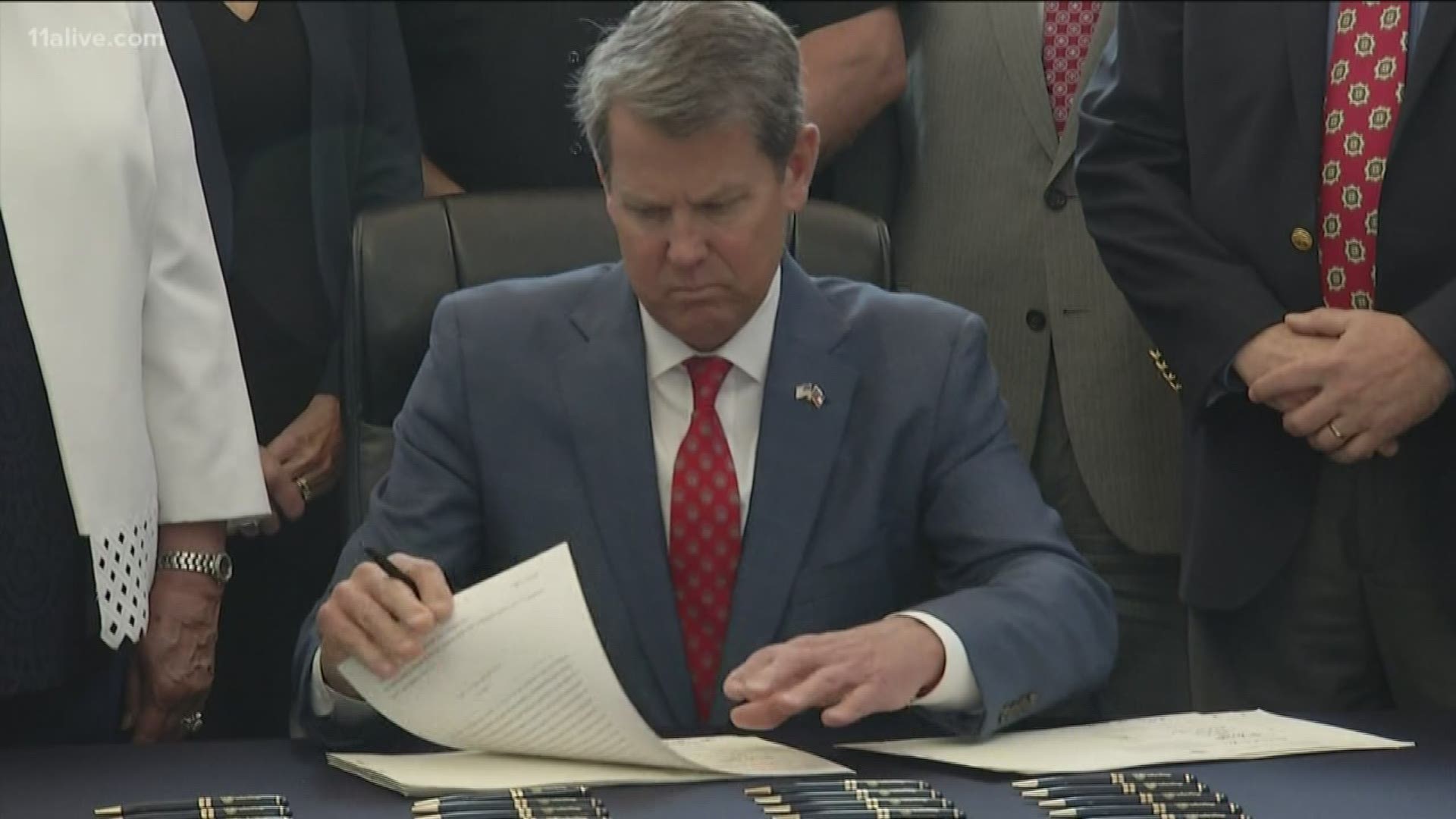ATLANTA — One of the new bills Georgia Gov. Brian Kemp signed into law slightly changes how police officers handle suspected DUI traffic stops.
House Bill 471 was a response to a Georgia Supreme Court ruling from February that ruled if a driver refused a roadside breathalyzer, it's unconstitutional to use their refusal against them in court.
The ruling lined up with a defendant being "innocent until proven guilty."
RELATED: Georgia Supreme Court: Refusing to submit to DUI breath test can't be used against you at trial
The previous law stated "your refusal to submit to the required testing (blood, breath, or urine) may be offered into evidence against you at trial."
The new bill Kemp signed drops the word "required" from law and now reads as such: "Your refusal to submit to blood or urine testing may be offered into evidence against you at trial."
Law enforcement officers can use other field sobriety tests to make an arrest and can ask you for voluntary breath tests. The law also applies to people suspected of hunting or operating a boat under the influence.
ALSO READ |

